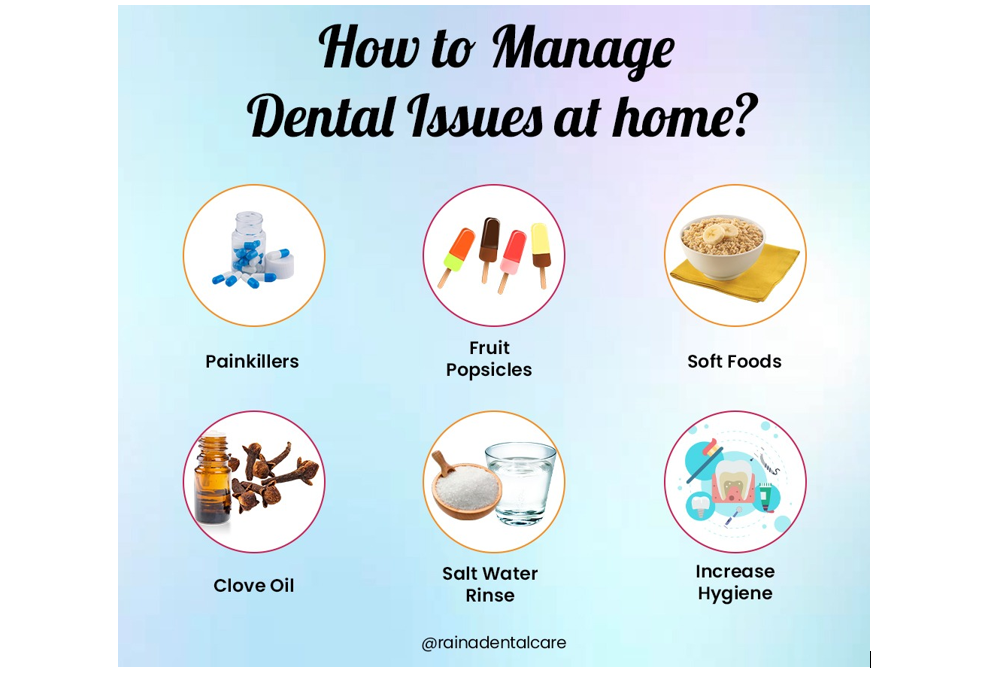Spending the right amount of time engaged in appropriate home oral care is undoubtedly essential to help minimize the risk of caries and periodontal disease. Every individual must visit the dentist twice a year for an oral exam.
Dentists can provide, promote, and direct patients about lifestyle behaviours and/or services that can aid in reducing the risk of problems and improving overall oral health. But you must practice oral care and take care of your dental health at home as well. Simply relying on external facilities is not always possible for everyone.
Hence, when in times of need when you cannot make it to the dentist, here are some at-home-dental care suggestions to relieve tooth discomfort until you can be evaluated by a dental professional.
• Use Clove oil: A long-time home remedy! Clove has an analgesic (pain-reducing) effect. It’s used to cure dental pain or teething discomfort (in babies). You just need to dilute it in a carrier oil first, as it can be very strong, and if applied directly without diluting can cause itching or a burning sensation in the mouth.
• Eat soft food: If you or your child has a toothache, try to stick to softer foods and focus on chewing on the side that isn’t causing discomfort until you can get in to see your dentist.
• Eating Popsicles: If you have ulcers, sores, or gum discomfort, the power of a cold, refreshing popsicle is pure magic. Make your own with fresh fruit or veggies for added nutrition and fun!
• Take prescribed painkillers: You can use a mild painkiller to subside the pain but don’t make it your first choice. A prescribed drug from your dentist is always preferred and suggested.
• Increase your oral hygiene: We always believe that diet is more important than hygiene for your teeth, and now is a great time to ramp it up. Brush at least twice daily for ideally 2 minutes. Tongue scraping and oil pulling are great additions to your routine, too! You can give it a shot at Oil Pulling and rinse your mouth with salt water instead of a mouth wash.
Coconut oil contains lauric acid, anti-inflammatory, and antimicrobial properties that assist in getting rid of plaque and bacteria; both are responsible for making the teeth yellow.
It’s important to note that we don’t suggest these as an alternative to dental care that you should be receiving from a professional. These methods can be practiced only in times of emergency.


